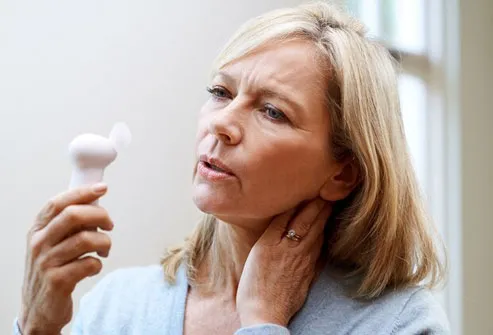What Is Sex Drive?

It seems like a simple question, but scientists still can't agree on exactly what makes up sex drive or how to measure it in men or women. While hormones play a role, it's not always clear how much of a difference they make. But other factors -- psychological, social, and physical -- also work together to create your libido.
Men: Your 20s

Testosterone, a hormone men need for sexual arousal, is typically high in your 20s, and so is your sex drive. But it's also a time when you could be anxious about sex because of inexperience. That might be part of why 8%, and possibly more, of men in their 20s report erectile dysfunction (ED). The condition can happen because of a medical or mental health issue or even be a sign that you're at risk for heart disease. Talk to your doctor about your symptoms.
Women: Your 20s

You're likely to be more fertile from your teens to late 20s than you are in the years that follow. This may make you choosier about if and when you have sex, though it's not clear exactly why. In fact, scientists think that female desire might go up just as fertility starts to decline toward the end of your 20s.
Men: 30s and Early 40s

Many men continue to have a strong sex drive through these years, though testosterone starts to slowly decrease around age 35. It typically goes down by about 1% per year, but it could be faster for some men. This could have some effect on your sex drive. Plus, for many men, the stress of work, family, and other commitments can affect how interested you are in sex.
Women: 30s and Early 40s

This time of life may be when your sex drive is strongest. One study showed that women between 27 and 45 had more frequent and more intense sexual fantasies than younger or older women. They also had more sex and were more likely to have it sooner in a relationship.
Women: Having Kids

At any age, pregnancy and childbirth have a big impact on your sex life, but it's different for everyone. Your body and hormones change throughout pregnancy. That may mean a boost in libido at times, especially during the second trimester, and a lack of desire at others. You also may be anxious about whether it's safe to have sex while you're pregnant. (It usually is, but ask your doctor if you're unsure.) Breastfeeding, raising kids, and other work can also affect the time, energy, and interest you have in sex.
Men: 50s and Beyond

If you're in good physical and mental health, there's no reason you shouldn't continue to enjoy your sex life as you get older. ED does become more common as you age. Your erections may happen less often and may be less firm. But it's not age itself that causes the problem as much as health problems that become more common with age, like heart disease, diabetes, high cholesterol, and obesity, and the drugs that treat them. Your doctor can talk to you about your options for treating ED.
Women: 50s and Beyond

Around age 50, an "empty nest" or less worry about getting pregnant might make some women more interested in sex. But as you head toward menopause, estrogen levels drop, which might cool your libido down a bit and lead to vaginal dryness. Hot flashes, anxiety, weight gain, and sleep problems also can make you less in the mood. Ask your doctor about medicines, hormones, lubrication, and other treatment.
Men: It's Not Just Testosterone

You need some testosterone to get aroused, but it's not clear how much. It may vary from person to person. And though it's true your levels decline with age, scientists don't know exactly how this affects sex drive. Some men with "low" testosterone show normal sex drive, while others with high levels have sexual problems. Other medical issues, physical fitness, and mental health could be more important factors.
Your Doctor Can Help

Talk to your doctor about any issues with your sex drive, as they could be a sign of a medical condition. If your physical response is the problem, your doctor may prescribe hormones that can increase overall sex drive (estrogen for women, testosterone for men), or drugs that boost sexual arousal: sildenafil (Viagra) and tadalafil (Cialis) for men, and flibanserin (Addyi) for women.
Talk About It

Ask your partner about their needs and desires, and talk about yours, too. Don't be afraid to try new things as your bodies evolve and your stage of life changes. This can help keep you and your partner engaged and interested in sex. Be honest about your physical and emotional satisfaction. It might even be a good idea to set aside certain times to be intimate.
Health and Sex: How Sex Drive Changes Through the Years
This tool does not provide medical advice. See additional information: 
© 1996-2024 WebMD, LLC. All rights reserved.
Source slideshow on WebMD
